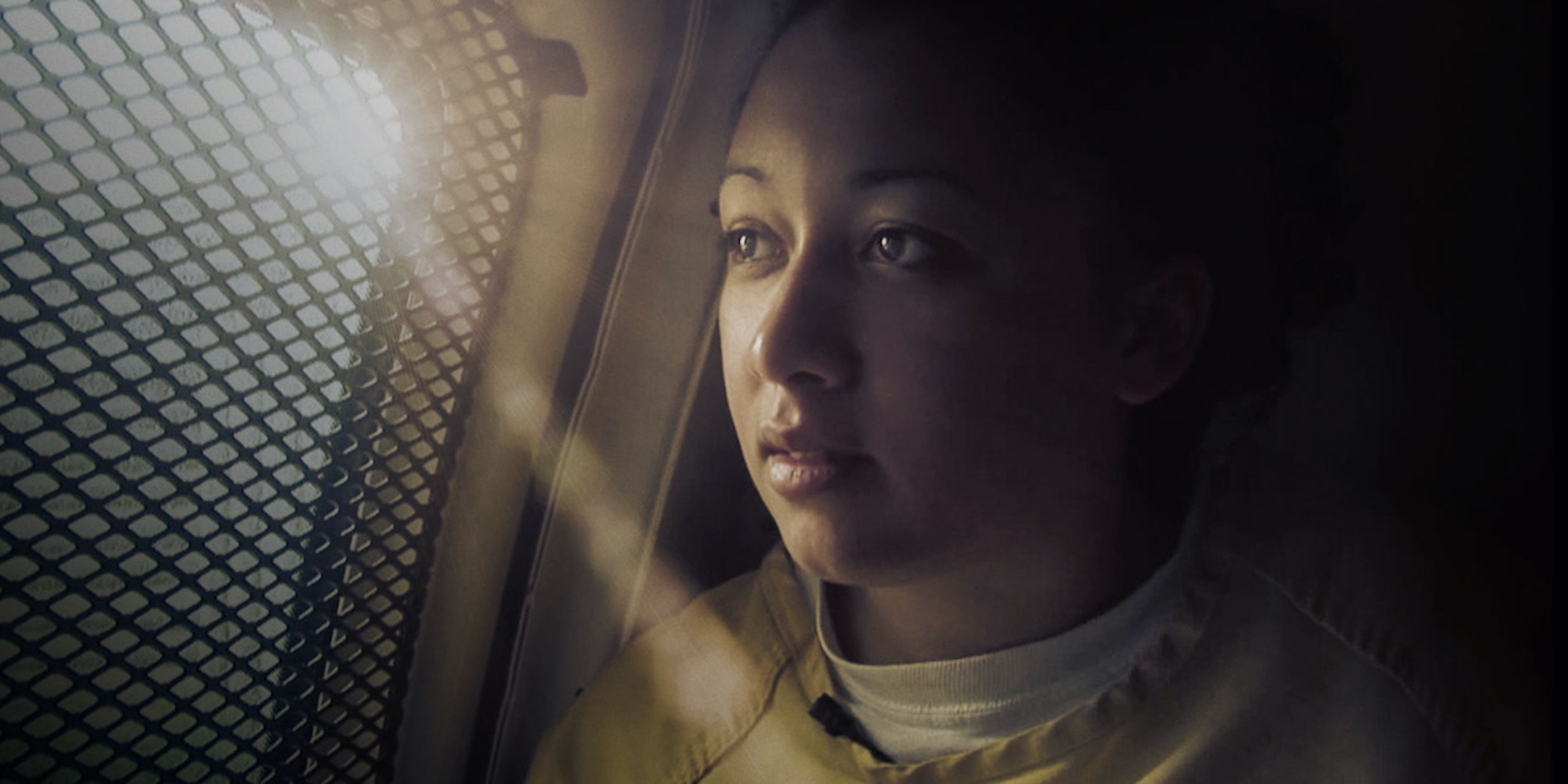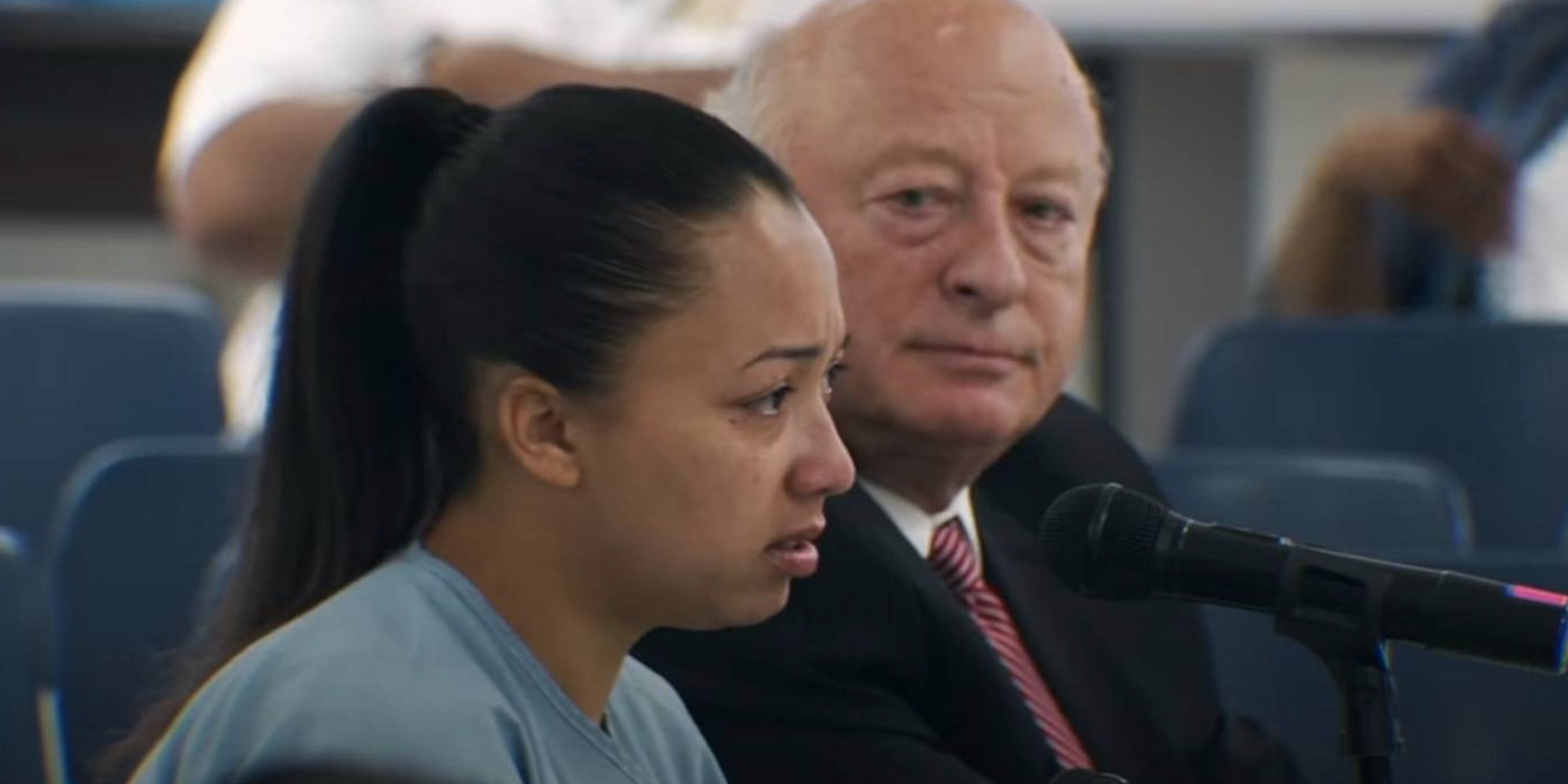The Netflix documentary Murder to Mercy shows how the #MeToo movement affected the fate of convicted murderer Cyntoia Brown. As a whole, Daniel H. Birman's film primarily explores the sociopolitical context for the subject's initial trial, and the psychological factors that warped her worldview. Netflix released Murder to Mercy in April 2020.
In August 2004, Brown — then 16 years old — killed Johnny Michael Allen during a sexual encounter gone wrong. She was arrested for the crime and portrayed as an unstable prostitute during initial court proceedings, evidenced by footage shown in the Netflix documentary. The first half of Murder to Mercy includes clips from Birman's 2011 film, Me Facing Life: Cyntoia's Story, which details how Brown's birth mother Georgina Mitchell drank during her pregnancy, and how Ellenette Brown adopted the child at two years old. Murder to Mercy on Netflix build to the revelation that Brown's childhood actions were heavily influenced by fetal alcohol spectrum disorder, thus creating her "chaotic" perception of the world with "no resolution." In 2004, Brown was sentenced to life in prison.
Brown's case made national headlines in November 2017 due to a news segment by Stacey Case of Fox 17 Nashville. Because of a changed law in the state of Tennessee, minors could no longer be charged and sentenced as "prostitutes." The legal revision was inspired by Brown's case, and the Fox 17 news clip went viral just one month after various reports publicly exposed Harvey Weinstein as a sexual predator. Just as #MeToo became a trending hashtag around the world, so did #FreeCyntoiaBrown.
As Murder to Mercy on Netflix shows, the popularity of #FreeCyntoiaBrown was heavily influenced by celebrity reactions. On November 21, 2017, Rihanna delivered a strong message to her Instagram followers by posting an image of Brown and discussing her backstory. Specifically, she connected Brown's case to sexual predators like Weinstein and stated "Something is horribly wrong when the system enables these rapists and the victim is thrown away for life!" Rihanna's post currently has almost 2 million likes.
That same day, Kim Kardashian — one of the world's top social media influencers (like it or not) — also tweeted about Brown's case, thus ensuring that the world would pay attention. She stated, "The system has failed. It’s heart breaking to see a young girl sex trafficked then when she has the courage to fight back is jailed for life!" Kardashian even noted that she had reached out to her attorneys "to see what can be done." In Murder to Mercy, Brown's lawyer, Charles W. Bone, states that "The attention that Cyntoia's case has received is an important worldwide event... that provides an avenue for consideration of children across the world, not just in the United States, not just in Tennessee."
Six months after the #MeToo movement took over pop culture, Brown received a hearing with the Tennessee Board of Parole. In Murder to Mercy on Netflix, footage shows that there were mixed reactions about Brown's future, but also that she received a strong amount of testimonial support, even from former prosecutor Preston Shipp. Ultimately, Tennessee Governor Bill Haslam decided to grant Brown clemency in January 2019, and she was released the following August. In the present, Brown is married to Christian recording artist Jamie Long and lives in Nashville. She also has over 150,000 Instagram followers, and released a memoir entitled #FreeCyntoia: My Search for Redemption in the American Prison System.


